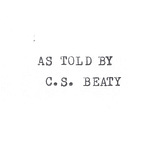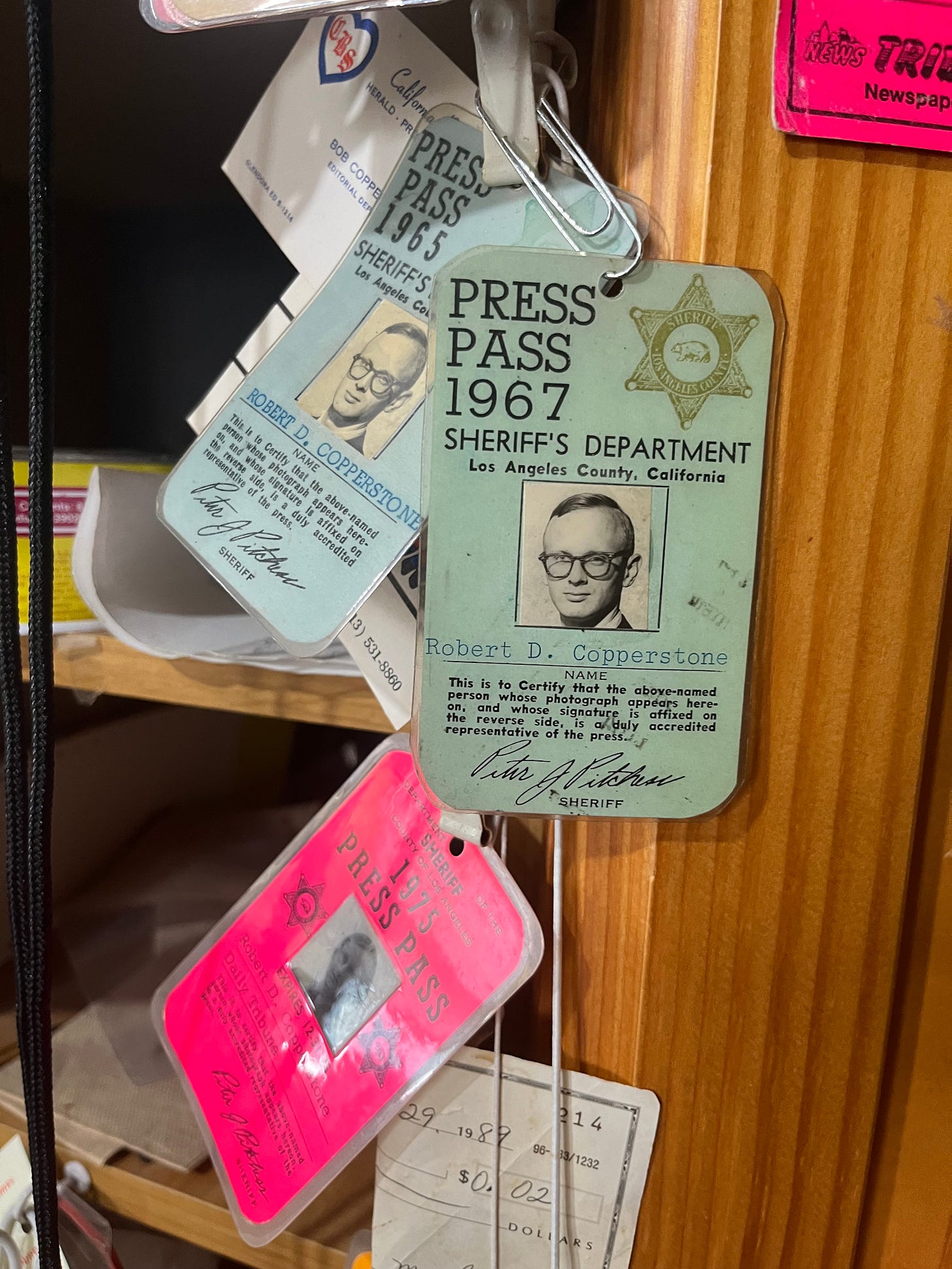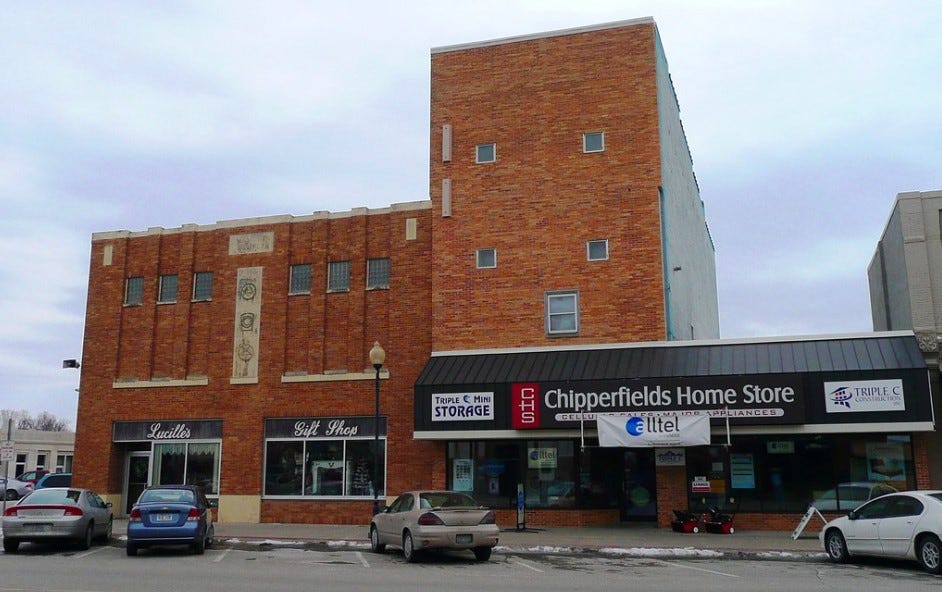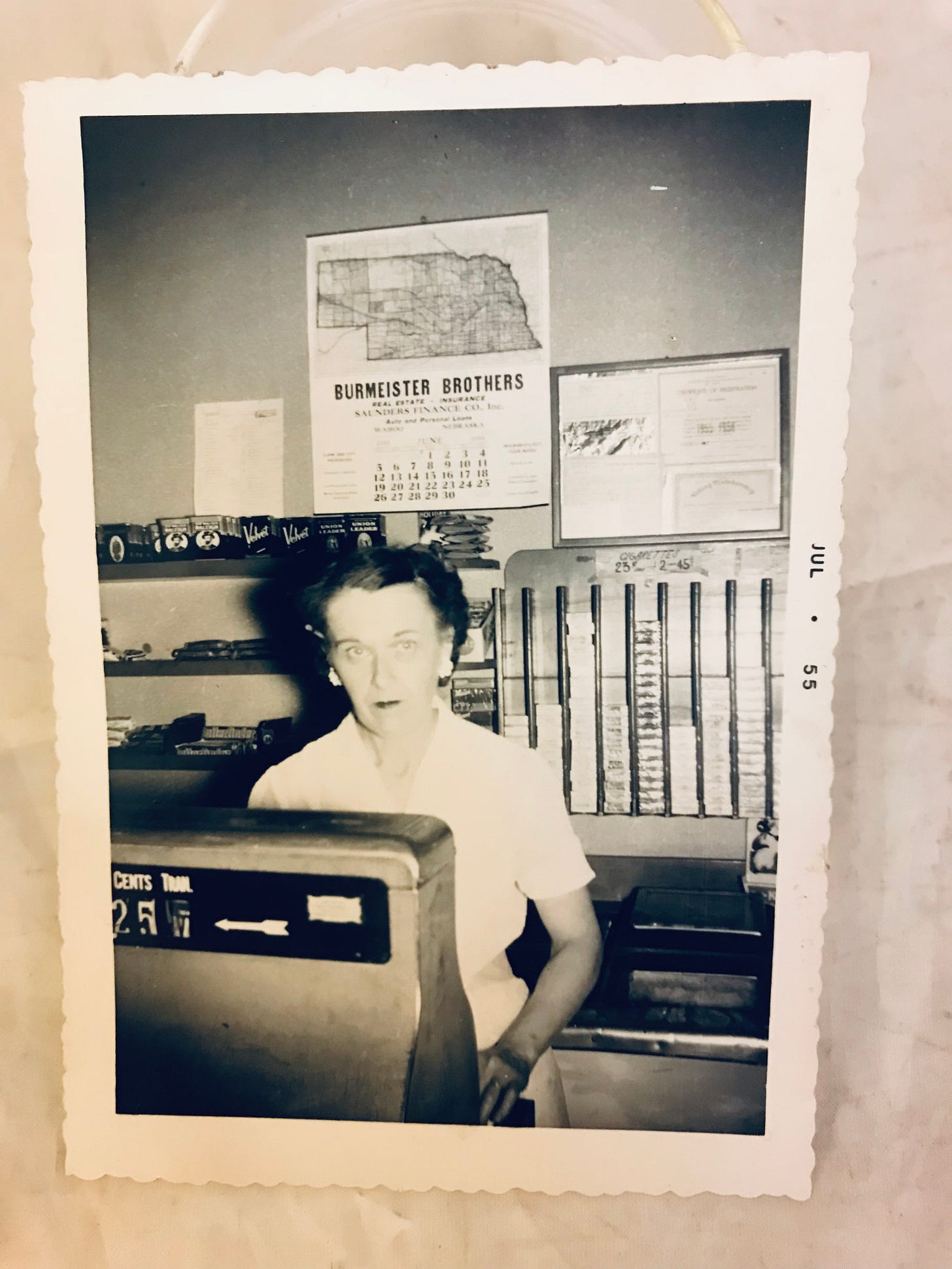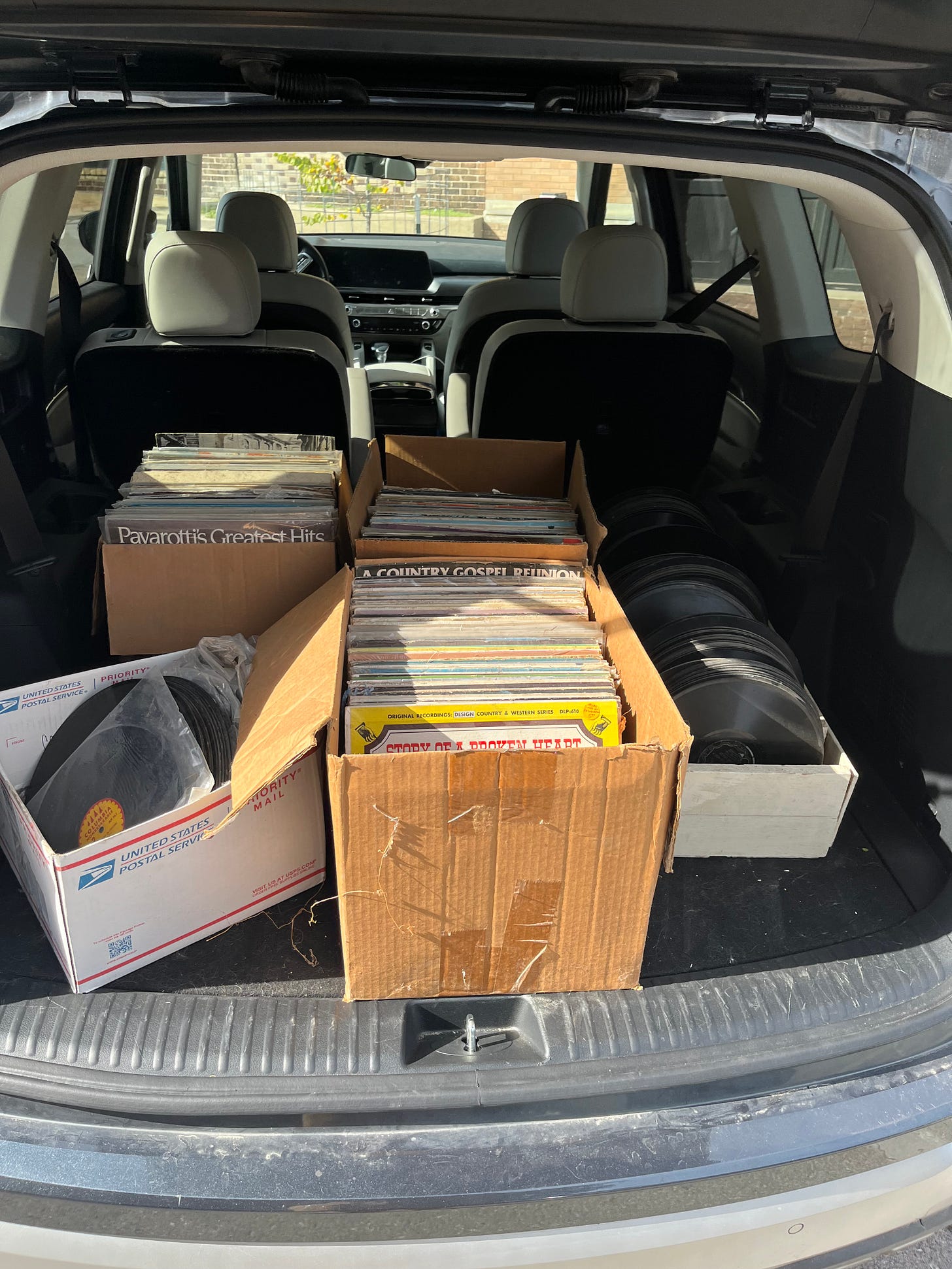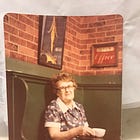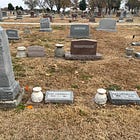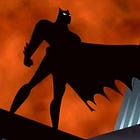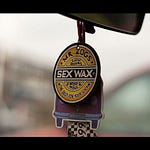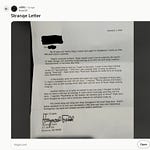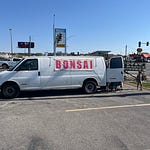By Bob Copperstone
Lucille’s Gift Shop’s Comic Book Treasure
For years, Lucille’s Gift Shop, originally on the corner west of the Wigwam Café in the LaGrand Hotel building, was a thriving business in downtown Wahoo.
I confess it now: I had a real crush on Lucille Herrick. I loved that woman dearly.
I couldn’t help it. I was only 8 years old, and she let me read her store’s comic books. For free! What’s not to love about that?
Lucille was like a second mother to me. I’d seek her out and hold up an owwie finger. She’d smile down at me, fetch a Band-Aid, and fuss over me a little. I just ate it up.
Some years later, when I was about 13, it was at Lucille’s that I ogled my first center-fold in Playboy magazine, which had debuted in 1955.
I lost interest in “Captain Marvel” that day.
* * *
Lucille herself was quite a pretty woman, with a terrific, gregarious personality. She was unmarried, but not unloved, and capably operated her small, wonderfully diverse shop with a smooth woman’s touch.
It was kind of like a boutique, but not so frilly, and had something for everyone. I did much of my Christmas shopping there, as did scores of others in Wahoo.
In later years, when I came back to Wahoo for vacations, I'd go to Lucille's at her third and final location in the old Hinky-Dinky grocery store on the corner below the Masonic Temple.
She'd help me pick out a trinket for Mom. The gift was always in good taste.
* * *
To this day, my sister Rochelle remembers seeing me and another small boy at Lucille’s original store. I remember the incident, too.
Both the boy and I were reading comic books without buying.
Lucille walked over to the other boy and told him to leave.
"But … what about him?" the boy naturally demanded, pointing to me.
"Bobby's different," Lucille said, guiding him to the front door. The outraged kid stormed out.
On her way back to her post behind the counter, she caught my eye and flashed me a quick smile.
I just smirked to myself and kept on reading “Captain Marvel.”
The Dark Side of Jukeboxes
The Wigwam Café in Wahoo, like many eating establishments nationwide during the mid-century, had jukebox music available, but it lacked the gaudy, colored electric lights and bubbles of the wonderful Nickelodeon and Wurlitzer machines.
A more fascinating jukebox could be seen at our downtown competitor, the City Café, which had one of the more elaborate such jukeboxes near the front door, for all to see. Before my parents purchased the Wigwam Cafe in 1949, I would often go there to ogle the light show.
I was fascinated as the mechanism performed its magic. It would select the desired 78-rpm phonograph record from a tall stack, swing it in place for the turntable to rise from below and spear the record precisely in the middle, make contact with the needle, and begin spinning: The show begins!
The Wigwam instead had seven miniature jukeboxes, one each in the five booths, and two more along the counter seatings. Each box showed the dozens of tune titles printed on maybe a half-dozen flip sheet panels. You drop in your nickel (thus the Nickelodeon trademark) or dime or quarter, and select your tune.
Your musical choice was then electronically shoved down into the basement to a large, disappointingly drab green wooden cabinet that held all the necessary machinery to make music, invisible to the customers.
In turn, the green cabinet shot the audio back upstairs to a huge single 18- or 20-inch wall-mounted speaker above the kitchen’s swinging doors.
The Keyes-Nichols company from Fremont actually owned the machines, and serviced and emptied the jukeboxes. (I’m not certain of the spelling of the company, but that’s the best I remember.)
The company’s partners were killed in separate car crashes under mysterious circumstances.
There was a rumor at the time that they were murdered after refusing to yield to crime bosses.
During that period of time in the U.S., organized crime was infiltrating the jukebox business.
"Every jukebox was a cash business selling an ephemeral product, and it was easy for the jukebox owner to falsify how many songs were actually sold, making the jukebox an ideal tool for money laundering and tax evasion for venue owners and organized crime.” (From “The Dark History of the Jukebox: How the Mafia Used Murder to Build Music Machine Empires” by Click Track: Music Industry Analysis.)
After those deaths, the weirdness surrounding the Fremont jukebox company continued to seethe in my family. My dad, Hank Copperstone, died in 1962, and my mother, Irma, took the reins managing the Wigwam.
That included the weekly Saturday night after-closing chore of wet-mopping and waxing the dining room’s linoleum floor.
She was all alone about 1 a.m. one spooky Saturday night soon apfter the Fremont men were “eliminated.” She told us afterward that that their deaths were on her mind.
The front and back doors were locked, the downtown streets were bare, and she was just about done, mopping her way back toward the kitchen. She was under the huge jukebox speaker at that point.
Her sopping wet floor mop splashed against the corner woodwork when all of a sudden -- WHAM! The eerie silence was pierced by a deafening Top Ten musical blast. Some unseen person was in here with her, she feared. It scared her half to death.
Had either the ghosts of the owners of the Fremont company or the Mafia come back to haunt the Wigwam’s jukeboxes?
Nah!
As it turns out, the electrical wiring from the individual booths’ coin boxes ran from the kitchen corner down to the record-playing green cabinet in the basement. Irma’s wet-mopping short-circuited the jukebox into a sudden, unannounced burst of coinless, if unwanted, music.
Mom had suffered during her battle of nerves against a jukebox hex. But at least she got a nickel’s worth of free play!
(To be continued)


